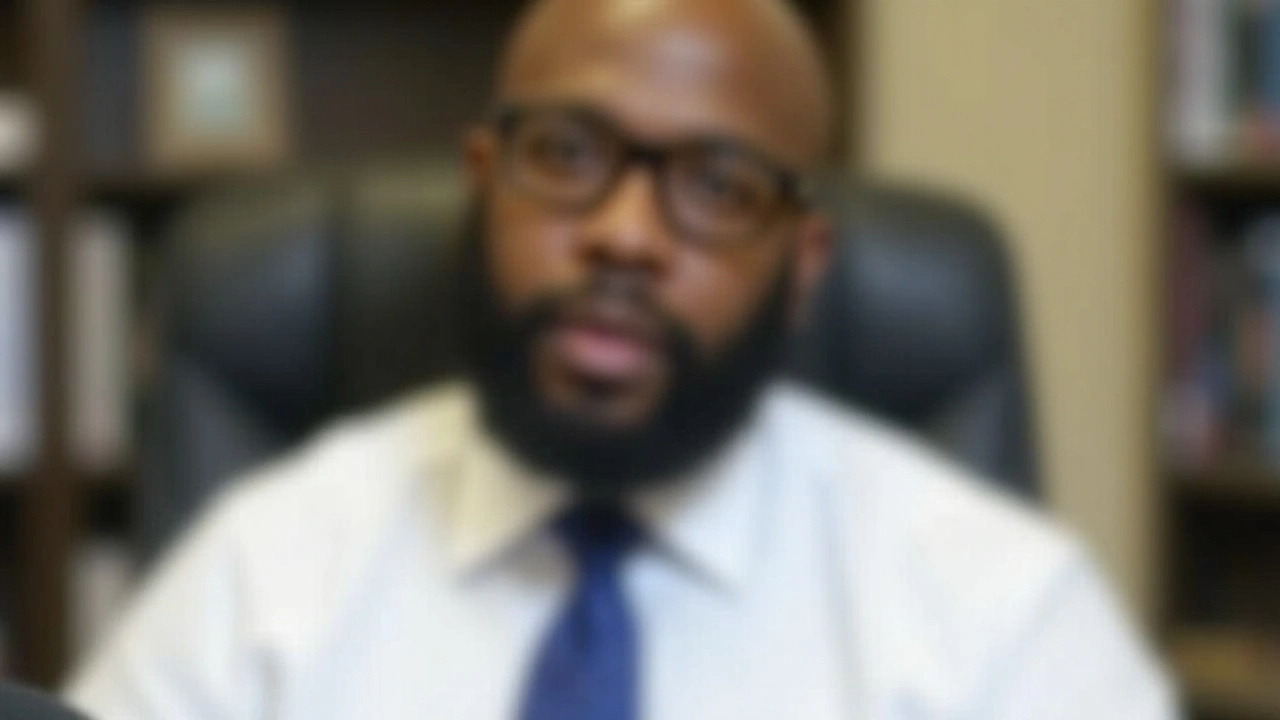Nigerian Army Faces Backlash Over Journalist Fisayo Soyombo's Detention
 Nov, 30 2024
Nov, 30 2024
Nigerian Army Detains Journalist: A Controversial Action
The intriguing world of investigative journalism can often lead to unexpected and sometimes perilous circumstances. This particular narrative revolves around journalist Fisayo Soyombo, a figure well-known in Nigeria for his fearless pursuit of truth. Soyombo, who founded the Foundation for Investigative Journalism (FIJ), recently found himself entangled with the Nigerian Army, leading to a public outcry and calls for intervention. The army's detention of Soyombo has accentuated the ongoing debate surrounding press freedom and military intervention in civilian matters.
It all began on November 26, 2024, when Soyombo's colleagues lost contact with him. There was no forewarning or indication of his impending detention. It wasn't until the morning of November 29 that the murmurings turned into tangible reality—the Nigerian Army had taken him into custody. His location was traced to the 6 Division of the Nigerian Army based in Port Harcourt, Rivers State. This revelation prompted a series of communications yet failed to assuage the growing concerns of his whereabouts and the underlying reasons for his arrest.
Allegations of Illegal Activity
According to statements released by the army, Soyombo was apprehended during an operation targeting illegal oil bunkering. The military asserted that Soyombo was found at a site involved in these illicit activities, a claim that raised eyebrows and sparked incredulity among his colleagues and supporters. The response was swift from FIJ and several civil societies, who argued vehemently against the army's narrative. These organizations maintained that Fisayo had merely been pursuing an investigative piece and had no affiliation with illegal activities. They proclaimed that the army's detention of Soyombo was a stark overstep of its boundaries, encroaching on terrains reserved strictly for the police force or civil regulatory bodies.
Constitutional Debate
The core of this issue extends beyond Soyombo's immediate safety; it reverberates across the fundamental rights safeguarded by the Nigerian Constitution. Critiques have argued that the army's actions undermine the fabric of democracy and the entitlements therein. The Nigerian constitution delineates the military's role, primarily confining it to defense purposes. Thus, the army's interference in civilian affairs, specifically through detaining a journalist, is deemed unconstitutional. The Media Rights Agenda (MRA), a prominent body championing press freedom, has been vocal about these concerns. It demanded the intervention of President Bola Tinubu, urging him to address this apparent misuse of power by military forces.

International and Media Reactions
In the days following his detention, the waves of discontent began to accumulate, sweeping across national borders. The International Press Institute, specifically its Nigerian branch, stepped in, lending its voice to a growing chorus advocating for his release. A robust media campaign gained momentum, drawing attention to Soyombo's predicament and calling for public officials to rectify the situation expeditiously. The ensuing pressure from both national entities and international organizations eventually led to his release. According to FIJ, his freedom was reclaimed amidst a fervent backdrop of media scrutiny and intervention, underscoring the potential power of collaborative advocacy in protecting journalists worldwide.
Concerns and Future Actions
While his physical release marked a momentary triumph, the lingering concerns regarding his safety and the resultant data sharing with the army remain unresolved. There is an evident unease concerning the extent of information exchanged during Soyombo's custody and how it might impact his future journalistic endeavors. The FIJ has vowed to challenge the army's assertions regarding Soyombo's alleged involvement in illegal activities, promising to clear his name and reaffirm his status as a journalist committed to truth-telling.
The Bigger Picture
At its core, this incident extends an open invitation to a broader contemplation of press freedoms within Nigeria's geopolitical landscape. It underscores the constant tugs-of-war between journalists seeking to shine a light on murky dealings and authorities striving to maintain order or, occasionally, to cover their tracks. If anything, the echoes of Soyombo's temporary disappearance spotlight the need for vigilant protection and respect for journalistic integrity, a reminder that the pursuit of truth should neither be obstructed nor threatened.
This episode marks not just a chapter in Soyombo's career but also a poignant reminder of the haunting specters that can shadow those dedicated to seeking and writing stories that matter. As voices rally behind him, the hope prevails for an environment where journalism thrives unchecked and untainted by unwarranted encroachments.